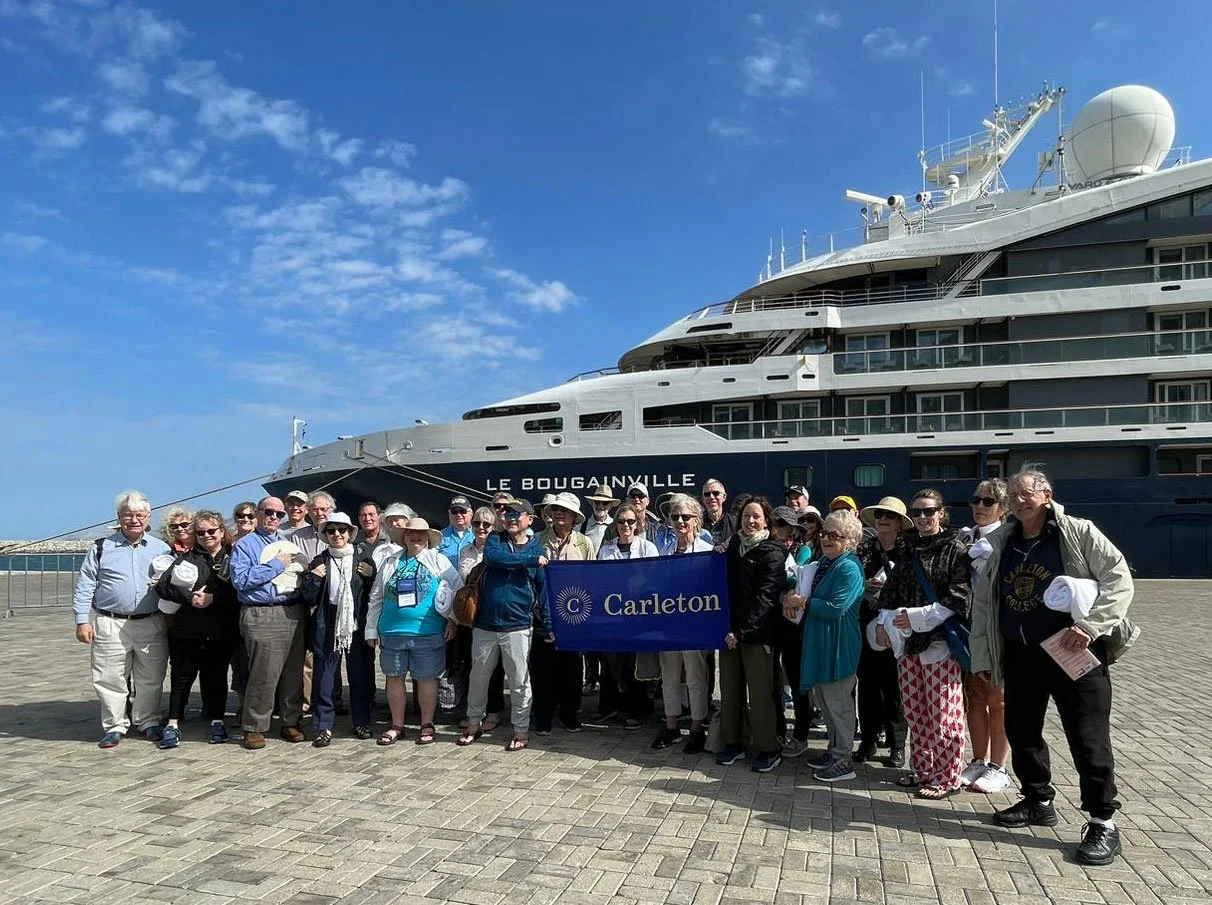Arabian Gulf Surprises - Part 2
Sheikh Zayed Grand Mosque, Abu Dhabi, UNITED ARAB EMIRATES
Arabian Gulf Surprises – Part 2
While having a wonderful time on my Arabian Gulf trip in January, 2023, I began to feel uneasy about where I was and our activities. From an environmental standpoint, so many things seemed to just be wrong. Any international travel contributes to global warming and the expense raises questions about income inequality and the ethical use of financial resources. Those questions arise on many trips, but traveling to the Arabian Gulf brings up many other issues.
1. Water and temperature. There is insufficient fresh water in the countries we visited, so substantial energy is used to create drinkable water through desalination plants. During much of the year the temperature is so hot it is almost unbearable, resulting in constant need for air conditioning. A large portion of the population travels to cooler climates during the hottest months. According to a recent Bloomberg News article, the United Arab Emirates pumps out nearly 25 tons of carbon annually per capita, one of the highest rates in the world, due to the energy required for desalinating ocean water, pumping air-conditioning into hermetically sealed buildings, maintaining golf courses and fountains, and powering motor vehicles.
2. Emphasis on show pieces. Everywhere we went we were told the size and unique features of dramatic buildings. Sometimes it seemed much of the construction was for show, designed to create a “wow” reaction, rather than serving a rational purpose. For example, we stayed in a beautiful hotel in Dubai, where our room had a large balcony. However, the door to the balcony was locked and a notice was posted saying it was closed for safety reasons. I assume that most of the other balconies were similarly not available for use, so why was the building designed to have a feature that could not be safely used?
3. Sustainability. Most of the large buildings in U.A.E, Qatar, and Oman were built in the last 20-30 years. Assuming much of the construction cost was from borrowed funds, I wondered whether these countries could survive a setback in the economy. The hotel we were staying in, which at first glance appeared modern and in good repair, had noticeable small issues of deferred maintenance, reminding me that the expense of new buildings isn’t just construction costs, but upkeep as well. Will the Gulf countries have the financial resources to maintain their new buildings? Most of their current income is from oil. The supply is not unlimited.
4. Exclusivity. Only a tiny proportion of the population in United Arab Emirates and Qatar are citizens (10-15%). The citizens have substantial wealth and privileges not shared by the balance of the population. There are strict limits on outsiders becoming citizens, so the proportion of citizens to foreigners is not likely to change anytime soon. Most of the foreign workers have visas tied to employment contracts, which allow for their removal when the contract ends. I assume they could also be removed if they failed to complete their contract. This left me wondering what would happen to a foreign worker who became sick or disabled, wanted to change jobs, or reached retirement age. It appears they would be sent back to where they came from.
5. Unfree speech and press. The civil rights of the citizens in the Gulf states are whatever the ruling families grant to citizens and visitors. These rights do not include freedom of speech and freedom of the press. As I understand the practice, anyone criticizing the government is subject to arrest and imprisonment. Being a citizen or even a member of the royal family does not protect a person from harsh penalties. During our trip we were cautioned to save any critical comments we might have until we were on our ship, so that we would not be subject to sanctions that might be imposed in public areas. A recent article in the New Yorker tells the story of a princess from Dubai who was punished for disobeying her father.
6. Restrictions regarding personal behavior. In the countries we visited (U.A.E., Qatar and Oman), normal Western dress seemed to be tolerated so long as we were not entering a mosque, at which point strict rules applied to attire for men and women. However, we were warned that public displays of affection were not tolerated. There are also laws against same sex relationships. For example, see the online discussion in Wikipedia of LGBT rights in U.A.E.
7. Harsh penalties. We were warned that violation of local laws could result in long prison terms, especially for possession of illegal drugs and weapons. We were told there was very little crime, leaving us to wonder whether that was because of harsh penalties, or because foreigners could easily be expelled if they misbehaved. Another explanation could be the relatively high income of residents, which might lessen the desire to engage in criminal activity. Religion may also be a factor.
8. Lack of transparency. In the U.S. we are so accustomed to open meetings, public records, and whistleblowers, that we forget that information about government activities can be much harder to obtain in other countries, especially if it is a monarchy. As we toured around the many impressive sites of our tour, our guides sometimes could not answer certain questions, especially regarding costs, because the information was not publicly available.
Carolyn and Don at breakfast aboard Le Bougainville in the Arabian Gulf
I loved my visit to the Arabian Gulf. It was fun to travel on a luxury ship, with college classmates as fellow passengers, delicious food every day, informative guides and lectures, and beautiful sites to visit, without concern about crime, litter, grafitti, homeless people on sidewalks, or news headlines announcing the latest scandal, political battle, mass killing, or environmental emergency It also made me realize how stressful life at home can be, in a country that provides many freedoms, but also constantly reminds us of our society’s short-comings, in regard to poverty, gun violence, homelessness, drugs, healthcare, environmental protection, and more. We each need to find a balance in our lives between enjoying the beauty and opportunities around us and doing our part to deal with the problems of society and the environment. The best way to do that is seldom clear.
This is not my last Arabian Gulf blog post. Look for Part 3 in a few weeks. The next post will include a discussion of Masdar City, a planned community 11 miles outside Abu Dhabi. There are several YouTube videos that provide a preview of that destination. Take a look!
Carleton College travel group, Cruising the Arabian Sea, Dubai to Muscat, January 6-14, 2023



